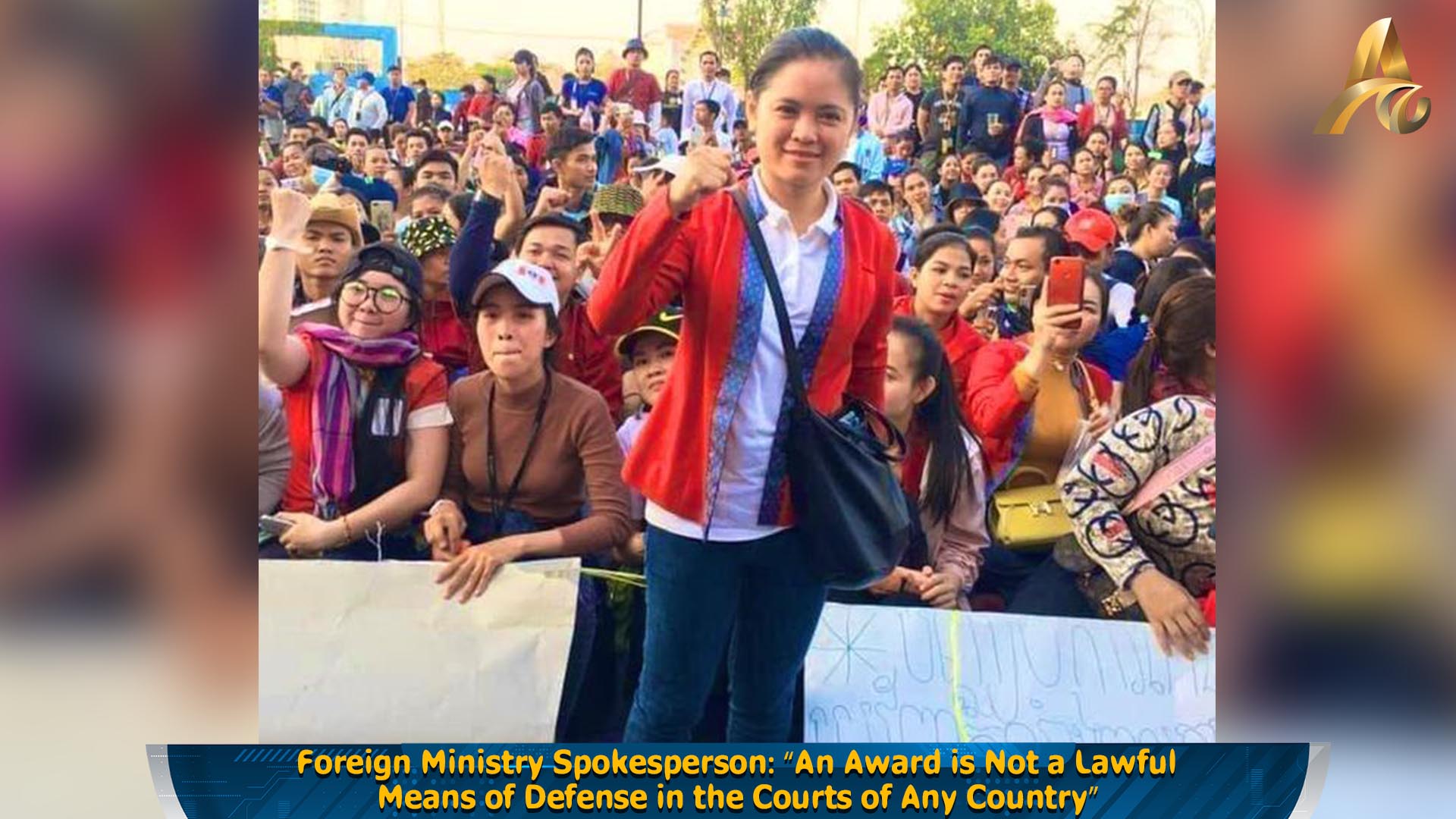
Foreign Ministry Spokesperson: “An Award is Not a Lawful Means of Defense in the Courts of Any Country”
PHNOM PENH: The Spokesperson of the Ministry of Foreign Affairs and International Cooperation has released a press statement responding to the U.S. Department of State’s recent announcement that detained Cambodian labor union leader, Chhim Sithar, would be one of ten recipients around the globe of the annual Human Rights Defender Award.
The Foreign Ministry Spokesperson’s statement describes Chhim Sithar as “a law-breaking person in Cambodia,” and comments that awards and honors are usually given to advocates for “peace, national harmony and reconciliation, disarmament; eradication of racial discrimination, violence and hatred; or an accomplishment for the interest of the society.”
The Spokesperson states that the move of the U.S. Department of State “does not represent a genuine wish of the majority of the Cambodiam people as it emboldens certain forces, who readily exploit the situation for their hidden agenda under the guise of human rights and democracy.”
Furthermore, the Spokesperson asserts that the legal actions taken against Chhim Sithar “were neither about human rights nor about labor disputes, but her flagrant violation of the ban on leaving the country while still under court supervision,” as stipulated in article 230 of Cambodia’s Criminal Procedure Code.
Finally, the Spokesperson emphasizes that such an award granted by the U.S. Department of State is not a “lawful means of defense in the courts of any country in the world,” especially when compared to the lawful route of “attend[ing] the proceedings and offer[ing] legal arguments with concrete evidences against the charge under the law and procedures of the state concerned.”






















